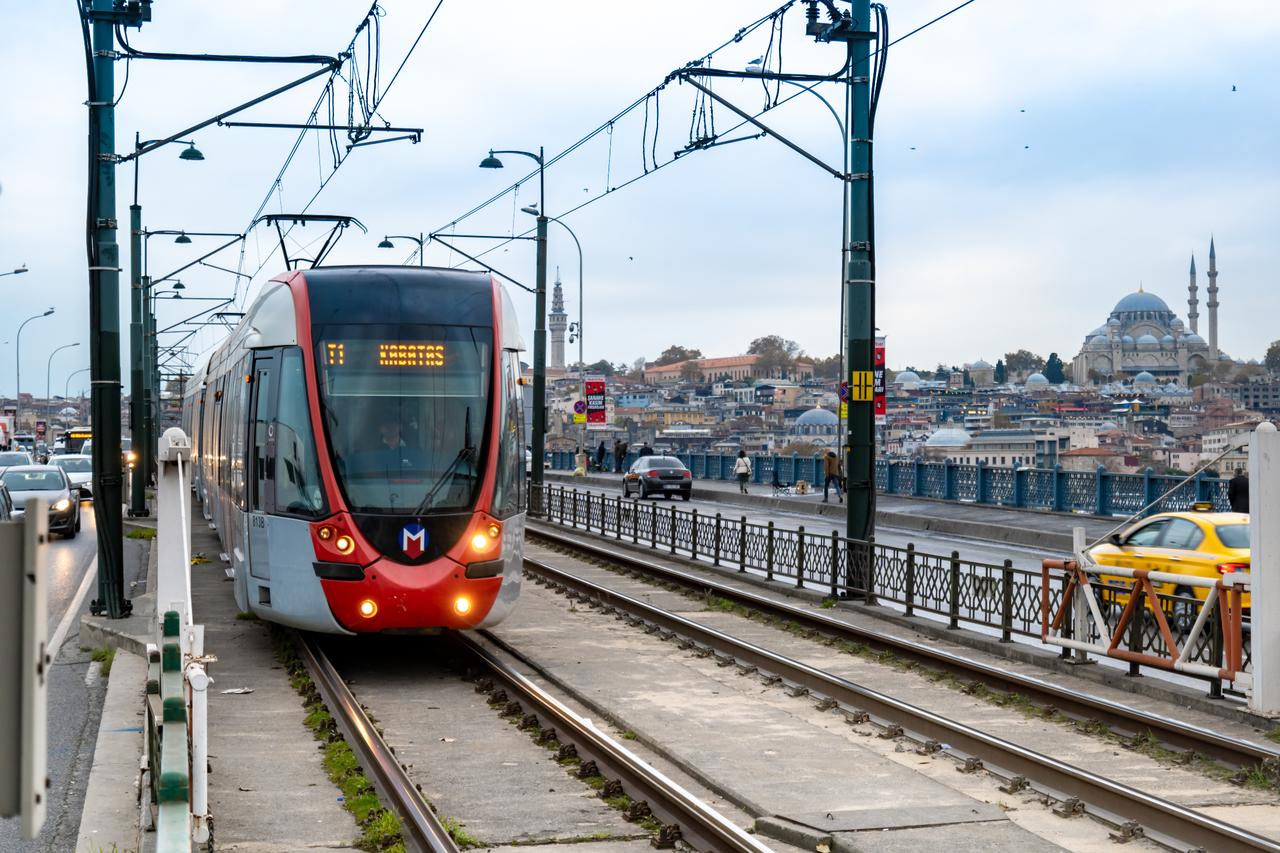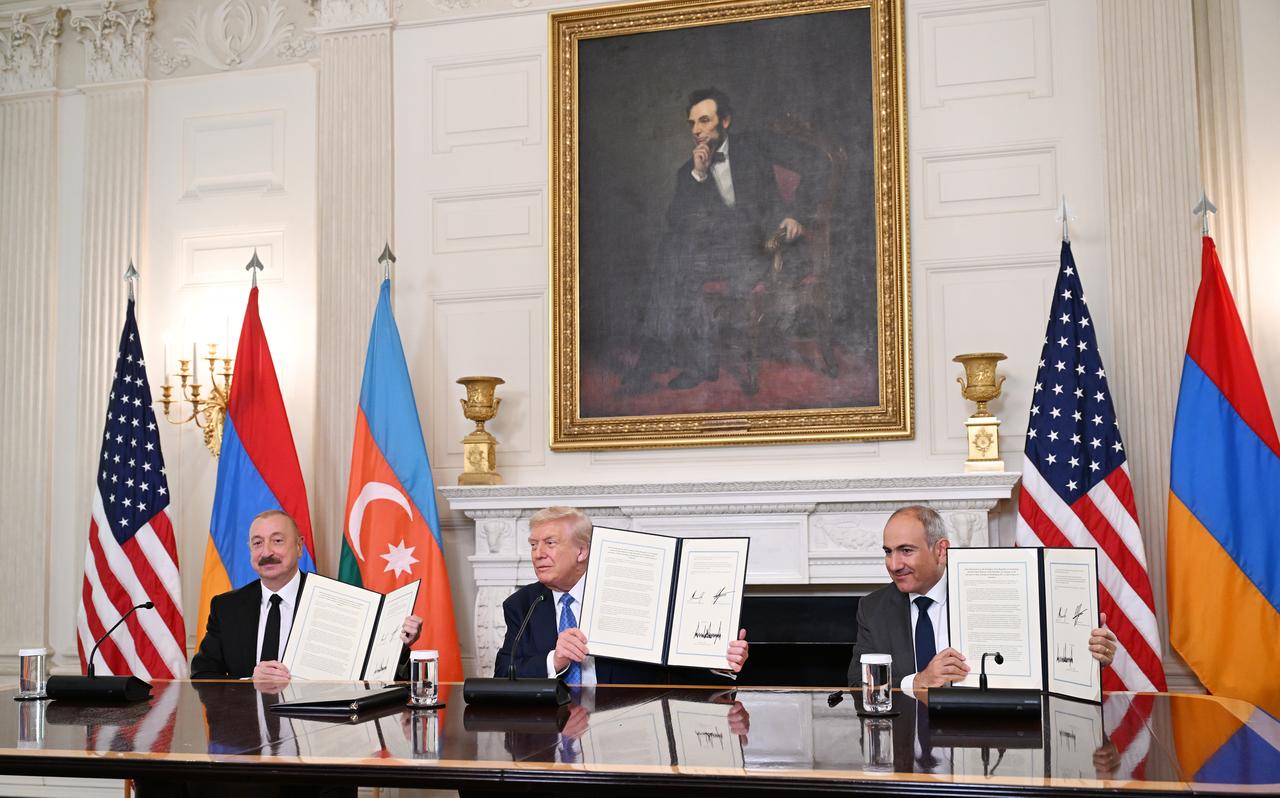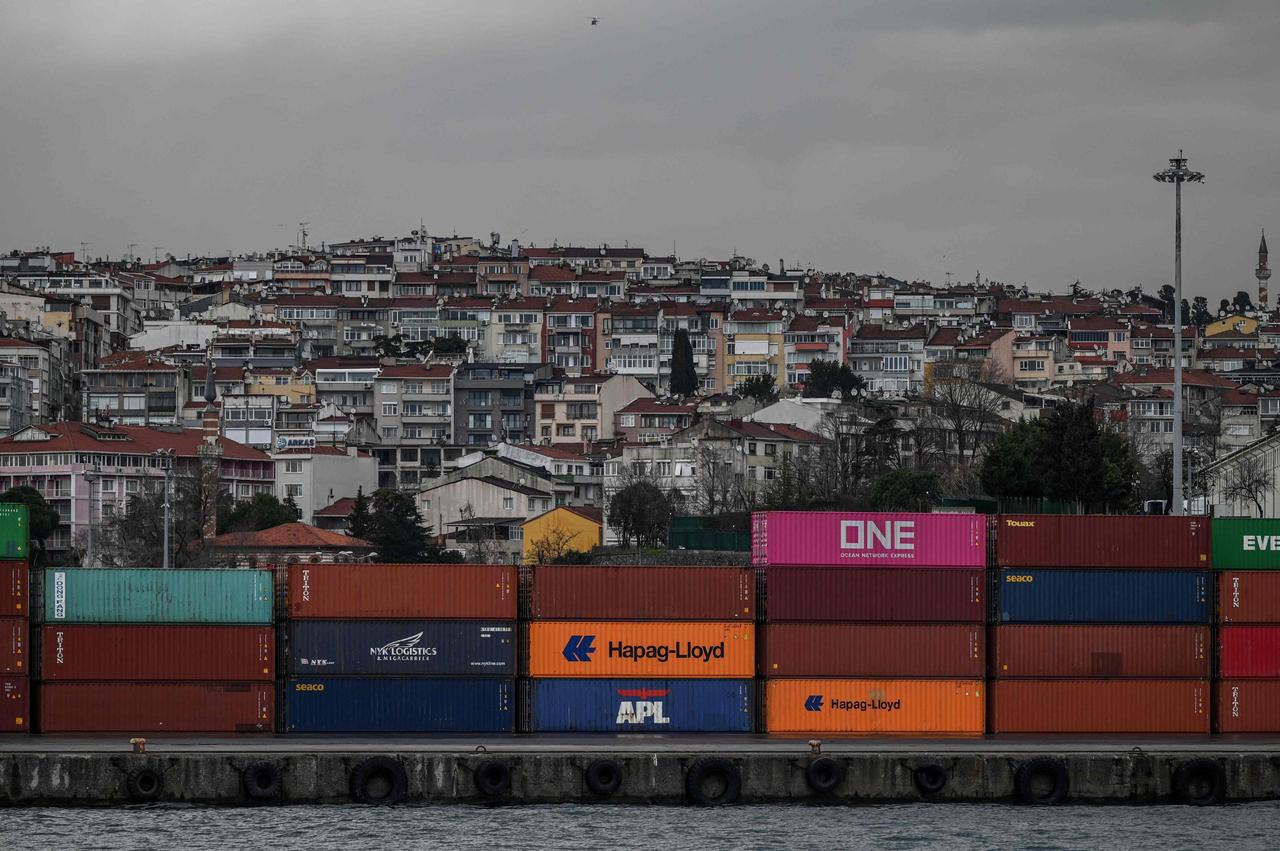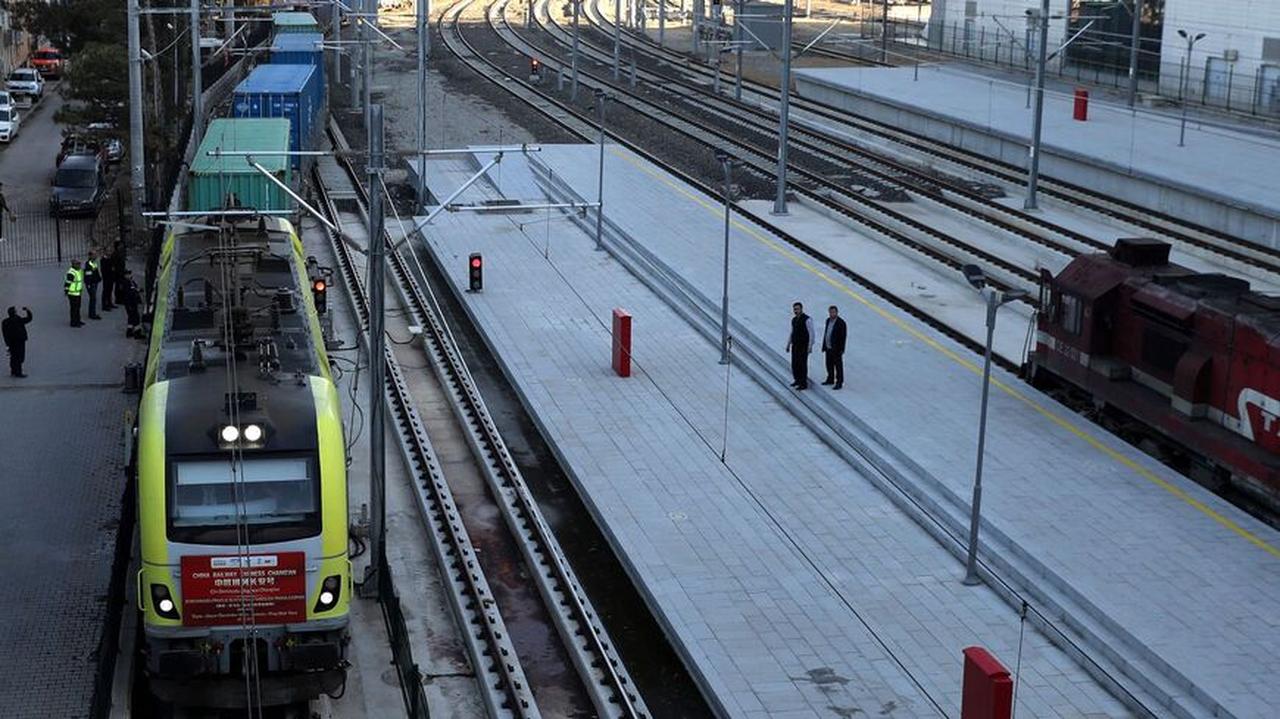
The opening of the Zangezur Corridor could transform Türkiye into a central player in global supply chains, according to a Turkish transportation industry official.
Bilgehan Engin, head of the International Transportation and Logistics Service Producers Association (UTIKAD), said the planned corridor connecting Azerbaijan's western regions with the Nakhchivan Autonomous Republic through Armenia represents far more than a simple transport project.
"The Zangezur Corridor, planned to connect Azerbaijan's western regions with the Nakhchivan Autonomous Republic through Armenia, is not just a transportation project, but a strategic step that will reshape regional trade, logistics lines and geopolitical balances," Engin said.
The corridor became a reality following a trilateral summit at the White House last week, where Azerbaijan President Ilham Aliyev and Armenian Prime Minister Nikol Pashinyian signed a joint declaration under U.S. President Donald Trump's mediation.
Trump announced that an agreement had been reached with Armenia for the development of the Zangezur Corridor, potentially lasting up to 99 years, ensuring full access to Nakhchivan while Azerbaijan respects Armenia's sovereignty.

The U.S.-brokered agreement between Azerbaijan and Armenia has brought the Zangezur Corridor into focus as a critical opportunity for Türkiye's regional logistics and trade strategies.
According to experts, the corridor will offer Türkiye new integration opportunities in energy, transportation and digital infrastructure. The placement of railway lines, oil and natural gas pipelines, and fiber optic networks along this route could make Türkiye a regional energy and communications gateway.
Economic circles indicate this development will provide competitive advantages to the Turkish logistics sector, which opens to European markets through Istanbul and Mersin ports. When integrated with the Baku-Tbilisi-Kars railway line under the Middle Corridor framework, the Zangezur route will reduce costs and time in freight transportation.

Responding to questions from the state-owned Anadolu Agency (AA) correspondent, UTIKAD President Engin said Türkiye stands on the threshold of a new era in logistics and foreign trade.
"Türkiye has the opportunity to become a central actor in global supply chains by establishing a logistics bridge between east and west in this process," Engin said.
Engin explained that the Zangezur Corridor offers an alternative and complementary route that will increase the effectiveness of the Middle Corridor, extending from China through the Caspian Sea to Azerbaijan, Georgia and Türkiye, then to Europe.
He noted that transportation times, which are extended due to infrastructure inadequacies and customs barriers in passages through Georgia, will be significantly reduced thanks to the Zangezur line.

Emphasizing the importance of the Zangezur Corridor for Türkiye, Engin continued: "Türkiye will establish direct land and railway connections to Central Asia through Nakhchivan and Azerbaijan with this new route, shortening transportation time and reducing costs."
"Thanks to this new line, transit times will be significantly shortened, logistics costs will decrease, an uninterrupted logistics bridge will be established with the Turkic Republics, and new economic opportunities will emerge for the provinces in eastern Türkiye," he noted.
"As UTIKAD, we believe that the Zangezur Corridor will add great value to Türkiye not only commercially but also geoeconomically. This corridor will not only strengthen Türkiye's central position in Eurasia, but will also contribute to the economic and cultural rapprochement of the Turkic world," Engin added.
"This line, which will be integrated with the Kars-Igdir-Nakhchivan Railway project, will create new trade routes and development opportunities for our eastern provinces," he stated.

UTIKAD President Engin said the possibility of the Zangezur Corridor being operated under U.S. management could offer some advantages for the project to become operational quickly.
"Especially thanks to modernization in ports, railways, security systems and customs infrastructure, Türkiye's goal of becoming a regional logistics base can gain more momentum. However, this situation also brings geopolitical risks," he noted.
"The effectiveness of the U.S. over the corridor could threaten China's trade security and trigger new moves. Similarly, it could narrow Russia's sphere of influence in the South Caucasus and create political pressures that could limit Türkiye's logistics leadership. Therefore, Türkiye should manage this process not only with geopolitical but also geoeconomic sensitivities, following a balance policy appropriate to regional balances while preserving its strategic autonomy," Engin said.
Emphasizing the importance of implementing certain strategic steps to fully benefit from the Zangezur Corridor's potential, Engin drew attention to several issues.
"Regional infrastructure compatibility must be rapidly ensured, digital integration in customs systems must be completed, Marmaray's freight transportation capacity must be increased, and the railway connection to the Yavuz Sultan Selim Bridge must be urgently completed," he noted.
"The realization of these steps will make Türkiye an indispensable actor not only in regional trade but also in global supply chains connecting Europe, Asia and the Middle East," Engin said.
Stating that the Zangezur Corridor will not only carry freight, Engin emphasized it will also connect cultures, economies and strategic partnerships.
"We know that Zangezur is not just a corridor, but a strategic gateway to the future for Türkiye's goal of becoming one of the leading countries in logistics in this century," Engin concluded.